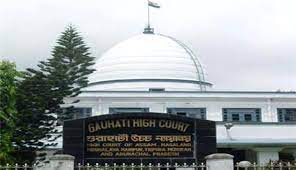 The Gauhati High Court in the case of VARUN GOYAL vs. THE STATE OF ASSAM & ORS vide Crl.Pet./699/2025 dated 25.06.2025, reaffirmed that GST law is not a complete code regarding arrest/search/seizure; thus, provisions like Sections 41 and 41A CrPC apply unless explicitly excluded. GST Officers must comply with CrPC provisions on arrest, especially Sections 41/41A. Further, “Reasons to believe” must be communicated, not just recorded internally. Non-compliance with procedural safeguards renders the arrest invalid.
The Gauhati High Court in the case of VARUN GOYAL vs. THE STATE OF ASSAM & ORS vide Crl.Pet./699/2025 dated 25.06.2025, reaffirmed that GST law is not a complete code regarding arrest/search/seizure; thus, provisions like Sections 41 and 41A CrPC apply unless explicitly excluded. GST Officers must comply with CrPC provisions on arrest, especially Sections 41/41A. Further, “Reasons to believe” must be communicated, not just recorded internally. Non-compliance with procedural safeguards renders the arrest invalid.
Facts of the Case: In this case, the petitioner was arrested on the allegation of wrongful availment and passing of Input Tax Credit (ITC) on the basis of invoices without any actual supply of goods, in violation of Section 132(1) of the Assam GST Act, 2017. The arrest authorization was issued and arrest was carried out by the tax authorities under Section 69 of the CGST Act.
At the time of arrest, the grounds of arrest were provided to the petitioner. However, the “reasons to believe”, which form the foundation for invoking arrest under Section 69(1) of the GST Act, were not communicated.
The petitioner challenged the arrest on the ground that mandatory procedures under Sections 41 and 41-A of CrPC (now Section 35(3) of BNSS) were not followed. These provisions are required to be complied with even under special laws like GST, unless specifically excluded.
The petitioner has been in judicial custody since 10.06.2025, but no prayer for police remand or custodial interrogation was made by the authorities.
Issue: Whether the arrest of the petitioner under Section 69 of the GST Act, without compliance of procedural safeguards under Sections 41/41-A CrPC and non-communication of “reasons to believe,” is valid and legally sustainable?
Held that: The Court found that there was non-compliance with mandatory safeguards laid down under Section 41/41-A CrPC, which apply even in GST matters, as reaffirmed by the Supreme Court in Radhika Agarwal v. Directorate General of GST Intelligence (2025).
Although the arresting officer had recorded the “reasons to believe”, those reasons were not communicated to the petitioner. This violated procedural safeguards and vitiated the arrest. Reliance placed upon principles laid down by the Supreme Court in Radhika Agarwal, Arnesh Kumar v. State of Bihar (2014), and Satender Kumar Antil v. CBI (2022). The Court held that communication of “reasons to believe” is a substantive safeguard, and its non-furnishing vitiates the arrest and undermines the rights of the accused.
Further, as no custodial interrogation was sought, the Court did not find the arrest to be justified from an investigative standpoint.
The Court found the arrest procedurally infirm and a violation of the arrestee’s rights under law. Interim bail was granted to the petitioner until final disposal of the petition under Section 482 CrPC.
To read the complete judgment 2025 Taxo.online 1346


